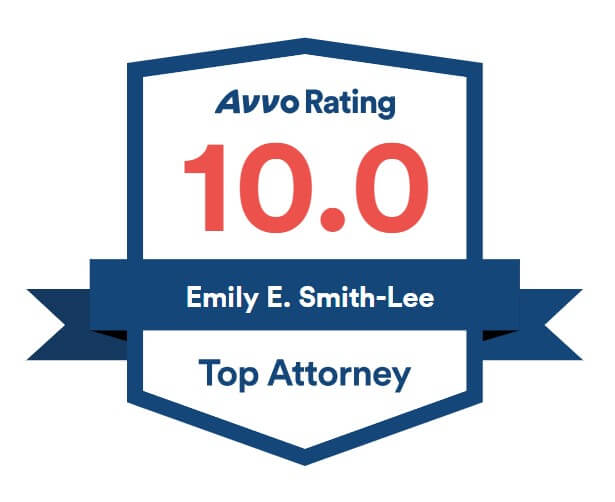Defending Against a Civil Lawsuit: A Comprehensive Guide for Businesse
Defending a Civil Lawsuit: What to Do if Your Business Faces Legal ActionReceiving a summons and complaint, signaling that your business is being sued, can be a daunting experience, especially if it's your first encounter with a lawsuit. You might be feeling confused, angry, and unsure about your next steps. However, there's no need to panic. Below, you'll find essential information to guide you through the process of defending a lawsuit. Additionally, we'll shed light on what you can expect as a defendant in a civil suit and address common questions related to civil lawsuits.
Understanding the Deadlines In Your SummonsThe summons and complaint you've received likely mention a 20-day deadline to serve an answer. While consulting an attorney can often extend this deadline, it's crucial to act promptly. Failure to respond to the summons and complaint could result in a default judgment, potentially limiting your ability to assert defenses against the plaintiff's claims.
Deciphering the Terms in the Summons and ComplaintCivil complaints often contain legal jargon that might be unfamiliar to you. Here's a brief guide to some key terms:
Review Your Insurance PoliciesDetermine whether your business is covered by insurance that may apply to the claims in the lawsuit. If you have coverage, notify your insurer promptly. Insurance policies often have specific deadlines for reporting claims. Waiting can jeopardize your coverage. Whether your insurance applies depends on your policy and the nature of the claims. Generally, negligence-based claims are covered, while intentional conduct claims typically are not. Additionally, Employment Practices Liability Insurance (EPLI) may apply to employment-related claims.
Collect and Preserve Relevant DocumentsPreserving relevant documents is essential for several reasons. Failure to do so can result in court sanctions. Plus, your attorney needs these documents to build a strong defense. Relevant documents include correspondence related to the plaintiff or the subject of the lawsuit, agreements, drafts, employment records (in employment cases), and more.
How to Respond to the ComplaintThe most common response to a complaint is to file an answer with the court. This legal document admits or denies the facts alleged in the complaint and outlines affirmative defenses. If you have counterclaims against the plaintiff, your attorney will include them in the answer. In some cases, your lawyer might file a motion to dismiss if the complaint lacks essential facts or falls outside the statute of limitations.
|
We're Here to Help.OR
|
Questions About a Civil Lawsuit?
Our Solutions Roadmap is a quick and easy way to share the details of what you are facing and receive preliminary feedback from a member of our team. Use the button below to get started- it is 100% confidential and 100% free.
Choosing the Right Attorney
If you have insurance coverage, your insurer will often select an attorney for you. However, if you don't, consider the following factors when choosing an attorney:
- Subject Matter Expertise: Ensure the attorney specializes in the relevant area of law. For breach of contract, seek an attorney with business litigation experience; for employment-related cases, opt for an employment law specialist.
- Litigation Experience: Attorneys possess varying skill sets within their areas of expertise. Seek an attorney with substantial litigation experience if your case is heading to court.
- Cost and Value: Discuss potential costs and value with your attorney upfront. They should help you understand potential liabilities, estimate litigation expenses, and explore early settlement options.
Meet Our Business Attorneys

Emily Smith-Lee is the owner and founder of slnlaw. She is a 1996 graduate of Boston College Law School. She was previously a partner at the Boston office of a large international firm, where she worked for thirteen years with a focus on business litigation. In 2009, she started the firm that since became slnlaw, and has grown it from a solo practice to a five-attorney firm with multiple practice areas. She has been recognized as Massachusetts Superlawyer each year since 2013, and in 2018 earned recognition as one of Massachusetts Lawyers Weekly's Lawyers of the Year. She has written a book on employment law: Rules of the Road, What You Need to Know About Employment Laws in Massachusetts, and helped hundreds of small business owners with contracts, business transactions, employment law advice, business incorporation, and risk management. She has also litigated business disputes in state and federal courts.

Rebecca Rogers: Rebecca is a 2006 graduate of Boston College Law School, and has worked with slnlaw since 2013. She previously worked as an intellectual property litigation attorney for Fish & Richardson in Boston, Massachusetts, and clerked for the Massachusetts Supreme Judicial Court. Rebecca has helped clients with business contracts, employment contracts, and employment law advice.

Jenna Ordway: Jenna is a 2013 graduate of Quinnipiac Law School, and also earned an LLM in Taxation from Boston University in 2015. She has been affiliated with slnlaw since 2011, first as a law clerk and then as an attorney. Jenna has been recognized since 2019 as a "Rising Star" by Massachusetts Superlawyers. Jenna has helped many small business owners with simple and complex business incorporation, contract review, advice and analysis regarding business disputes, employment law advice, and advice about business succession considerations as part of estate planning.

Elijah Bresley: Eli is a 2014 graduate of Seton Hall Law school, and has worked with slnlaw since 2020. He previously worked for a boutique employment law firm outside of Boston, and then for the Labor and Employment department of a large Boston firm. He also spent a year clerking for the judges of the Superior Court in Hartford, Connecticut. Eli has helped our small business clients with employment law advice and defense of employment-related lawsuits in MCAD and state and federal courts.

Sharleen Tinnin: Sharleen is a 2010 graduate of Northeastern University School of Law, and has been with slnlaw since 2023. Prior to joining slnlaw, she worked with King, Tilden, McEttrick & Brink, P.C. on complex civil litigation matters. She previously worked for the United States Department of Justice, and received an "Excellence in Justice" award in 2017. Sharleen has helped clients litigate business disputes in state and federal courts, and advised business owners about succession considerations as part of their estate planning.
How We Can Help
Our experienced legal team is here to provide you with expert guidance and support throughout the process of defending a civil lawsuit. From understanding legal terms to formulating strong defenses, we'll work alongside you to protect your business's interests.
You can use the button below to schedule a call back from a member of our team, or give us a call at 781-784-2322.
You can use the button below to schedule a call back from a member of our team, or give us a call at 781-784-2322.
|
Emily Smith-Lee Rated by Super Lawyers loading ... |
Jenna Ordway
Rated by Super Lawyers loading ... |


